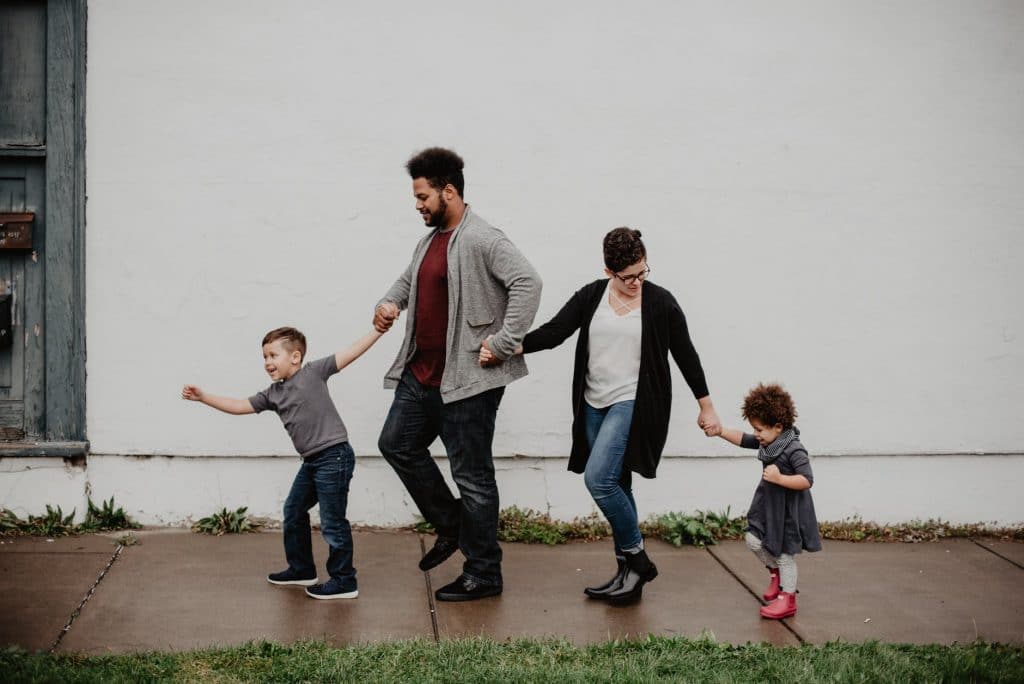Kids should come with a manual, but they don’t. If you just had your first child, you might be sitting there thinking, “How do I do this?” Not to worry. Parenting 101 class is now in session.
Do you have your notebook and pencil?
Is your baby sleeping? Because if not, don’t plan on getting anything done.
That’s your first Parenting 101 lesson. You’re welcome.
Parenting 101: What It Takes to Be a Good Parent
Everyone that has ever been a parent has wondered whether they were a good parent. It is a natural curiosity.
We all wonder whether the things we do will affect our children in a negative way. Everyone has an opinion, and we hope to help sort some of those out.
Walk along with us as we explore what it takes to be a good parent and how to be a better parent. We will be sharing one sure-fire trick that will elevate your parenting skills beyond the solar system!
What the psychologists say
When it comes to raising children, psychologists usually have a lot to say. Unfortunately, we didn’t find much out there on the intricacies of infants. Most of the information deals with children from toddler and beyond.
There isn’t a lot of information that will tell you which cry means a wet diaper, which one means they’re hungry, and which one means they’re tired.
During the first year, you’re going to have to figure out a lot on your own. Some things are well-documented in books, but these are predominantly centered around the physical care of your baby.
To care for your child’s psychological wellbeing, the opinions are as varied as there are children in the world.
At Psychology Today, they offer up 10 parenting tips that are a good place to start:
- 1Identify your child’s strengths
- 2Punishment is not as effective as praise and rewards
- 3Avoid negative emotions, such as sarcasm, anger, and ridicule
- 4Don’t compare your children to each other
- 5Get support when you need help
- 6Give your children positive attention
- 7Monitor and limit your child’s internet use
- 8Life is totally different when you have a child — accept it
- 9Be a good example
- 10Don’t give up on your kid
So there you have it. Psychologists don’t know much about Parenting 101 when it comes to infants. However, the above list is a great place to start for general tips as you travel along your journey.
What the teachers say
Teachers don’t really get to experience your children until they are beyond the toddler stage. When you send your child to school at the ripe old age of four or five, you have already taught them a lot.
Most teachers will expound on the importance of parental involvement from early childhood through high school. The difference between a student with an involved parent and one without is noticeable from pre-school age and beyond.
So, basically stated, most teachers say that an important part of parenting is to be involved in your child’s activities, school, and life in general.
What other parents say
What don’t they say would probably be the more accurate phrasing? When it comes to advising, there is no shortage of input from other parents.
“Well, when mine were that age…“
“None of my children acted that bad. I taught them manners.“
“You have to spank them…“
“You can’t spank them…“
“Don’t let them make choices…“
“You need to encourage them to make decisions early…“
Every parent has an opinion. Some are good, and some are not so good. Unfortunately, there is no easy way to sort through them to determine which is which.
There is no shortcut to Parenting 101 when it comes to sorting out what will work best with your child. On this, listen to the opinions of other parents, but determine your own rules, guidelines, and practices when it comes to raising your children.
There is no “right” or “wrong” parenting style if you are actively trying your best. Because each child is different, parenting styles will even change from one sibling to the next. Remember, there are no one-size-fits-all manuals with children.
Adding a Child to Your Busy Schedule
image source: pixabay.com
So many people enter parenthood with the idea that a baby won’t change their lifestyle much. They get a rude awakening within the first month of having a baby in the house.
It takes longer to prepare to go anywhere. Grocery shopping becomes a nightmare — or a welcome respite if you can leave the child at home with a spouse. Diapers, wipes, extra outfits, bottles, and a few extra diapers.
Where did that Binky go? The owl? Where is the stuffed owl? How did you lose a shoe already? Ah, geez… did you have to spit up NOW? Oh, no you didn’t! OMG! What did I feed you that caused THAT?
Buckle up. Please keep your hands and feet inside the car at all times. This will be the wildest roller coaster ride of your life. And you will not always enjoy the ride, but the triumphs are worth the troubles.
I wouldn’t lie to you about that.
Achieving the proper mindset
If you are expecting, you have time to prepare yourself for this journey. Achieving the proper mindset before your baby arrives is a positive step in the right direction.
That includes adoptive parents, foster parents, and even aunts, uncles, and grandparents. Babies change family dynamics in many ways.
Read books. Learn about the birth process. Explore your options when it comes to the type of birth you want: natural, fully medicated, with a midwife or Doula, C-section. Some of those decisions will be based on the pregnancy itself.
Take some time before the baby gets here and adjust your mind. Watch documentaries. Talk to your doctors and nurses. Even if you don’t use a midwife or Doula, they can be a wealth of information and counseling. Talk to other parents.
Parenting 101 isn’t a manual you can open to page 72 to find answers. It is an entire process.
Don’t be afraid to research, and don’t panic when you read some of the “worst case” scenarios out there. While the internet can be a wealth of good information, there is also an overwhelming amount of questionable information out there. So research wisely.
Planning makes life easier on everyone
Find a pediatrician before the baby arrives if you can. Most pediatricians will allow for pre-patient interviews so you can meet the doctor and some of the staff. You can often tour their office, check references, and conduct research on the best type of doctor for your child.
Some will even allow you to pre-register your child as a patient. That allows you to enter all your personal data and register your insurance information. By pre-registering your child, your first appointment will run more smoothly.
Don’t start habits that you don’t want to continue for 18 years. If you have “whisper rules” every time the baby is sleeping, your child will grow up unable to sleep unless the entire house is quiet. Don’t go out of your way to make noise, but don’t over-do the quiet either.
Make lists and plan. Play “What if…” with your spouse to learn how each of you will respond to certain hypothetical things. Discuss alternatives. Planning is the best way to settle into changes quickly.
Although you don’t need a plan for the next 18 years, having a good idea of what you are looking forward to will help. Discuss things like disciplinary expectations, chores, and school goals with your spouse before they become an issue.
Parents need to stay on the same track because raising a child is a team effort. If one parent is always giving in, the kid will learn to skip the other parent and always go to the one that caves.
Parenting 101 tip coming up: Children can be devious little manipulators. To win at parenting, you need to be aware of that and guard against it. You are the parent. The rules are made by you. Stay strong, firm and above all, consistent.
Family vacations can wait a few years
If you and your spouse routinely go on a large vacation every year, hold off on those for the first couple of years. Instead, try some shorter trips closer to home while your baby is an infant.
There is nothing worse than being two continents away from your pediatrician when Junior has his first earache. If you are closer to home, you can make the trip back to see your regular doctor.
Sightseeing tours aren’t very fun with an infant. One of you will always be holding the baby, worrying about feeding, diaper changes, and trying to keep the baby awake all day so you can sleep at night. The list goes on.
There are some people who have taken infants camping as young as two and three weeks old. If your family camps, this is always a fun outing. Without the pressure to see all the sights, you can relax in the fresh air and actually enjoy a vacation.
There is plenty of time for European vacations in a few years.
Grandma, Grandpa, and all the relatives
Visiting relatives isn’t always an easy task either. Your child will be in a new environment, surrounded by strange people cooing and pinching their puffy little cheeks.
To a baby that may feel like being a tiny ant staring at a huge boot about to drop on your head. It can be scary, so keep that in mind. We would be remiss in not extending that warning to new parents in any rendition of Parenting 101 tips.
Start with small groups so you don’t overwhelm your child. Having relatives visit you in your home is an option also. Your child will have the familiarity of “home” when they meet hoards of belly-poking, cheek-pinching relatives.
Diaper bags, toys, and a clean outfit
Parenting 101 super tips to follow:
Keep a diaper bag packed and ready. ALWAYS.
Restock it when you return from an outing. Keep at least 10 diapers in it at first. That number will decrease as your child grows, but for a newborn, at least 10 diapers for any outing.
Add a zippered baggie or two to carry soiled diapers when there are no appropriate receptacles. Always carry at least one extra outfit for your child (and possibly a spare shirt for yourself). Baby wipes, washcloths, burping cloths, and receiving blankets are also good items to pack.
If you use formula, you can pre-measure the dry mix and keep a few spare bottles on-hand that you only have to add water to. When Junior gets cranky in the grocery store, you will bless this tip.
From One- to Five-Years-Old Is a Blur
image source: pexels.com
We’ve already discussed a lot of early childhood issues. Planning is the most effective tool that you have as a parent. The first five years will be a blur. You may not remember much of it when they go off to Kindergarten.
Don’t worry, those memories are still there. They’ll surface and make you cry as you watch your child progress through the school years.
Take LOTS of pictures. We all have cameras on our phones. You don’t need fancy equipment. Snap away. Take photos when your kid is sleeping. Catch them when they’re playing. Crying, eating, pouting — it’s all fair game.
When you’re looking back at these years, you can select photos to use as blackmail when they are a mouthy teenager…
“If you don’t do your chores, I’m going to make sure the yearbook committee at school has THAT picture for your senior yearbook!”
Yes, that works. At least with most kids. They do worry about those embarrassing childhood photos taken by an exuberant parent.
OMG — They’re in School Already!
image source: pixabay.com
Ah… Kindergarten. It’s been four or five years since you have had time to relax. Will you even know how to act? What will you do with all your free time?
Parenting 101 tip for the school years #1: Do Nothing.
Rest and relax for the first two weeks. Putz around the house. That generally means wandering aimlessly. The little person you dedicated your life to is gone for seven hours a day, and you feel empty. It’s normal. It will pass.
Think of all the things you put on hold five years ago. Those hobbies? The craft projects? Painting the bathroom? You now have time to do all of them. YOU time. At first, it may seem daunting, but you will come to relish the school hours.
As each school day ends and you pick your kid up, share your day. Celebrate the triumphs of an art project. You will become adept at getting your child to tell you what those unidentified lumps in the drawing are.
Elementary school, PTA, and organized sports
As your child progresses through the early years of our educational system, there will be a multitude of things that parents need to pay attention to.
Elementary school is the basics. Teachers teach writing, simple math, and kids begin to get a little bit of history. The history usually takes the form of traced hands on brown construction paper made to sort of resemble a turkey. Projects are geared toward having fun and learning.
As your child develops, they will learn complex social niceties. Play fair, share the glue, don’t run with scissors, and don’t fight with little Susie.
As a parent, you will be asked to join a Parent-Teacher organization. These programs participate in school functions, fundraising for extracurricular activities, and creating a fun and healthy environment for your child. Consider joining the organization at your child’s school.
If your child is athletic, most communities have programs that begin around the 4- and 5-year-old range. It’s where the soccer mom is born. Encourage your children to participate in team sports. They teach team play, sportsmanship, and perseverance.
Parenting 101 is all about supporting your child and providing positive life experiences along the way.
Middle school, high school, and then the boot
If you thought the first five years went quick, wait until you hit middle school. Your child will be heading off to sixth grade one day, and then, seemingly hours later, you’re getting a bill for senior pictures.
Middle and high school are where your child begins to plan for their future. They start considering colleges. Some will start researching career paths.
Whatever your child does at this stage regarding schooling is easy — just support them.
Basic Parenting 101 goal of the day — be a supportive parent no matter what.
Discuss their expectations and goals. Talk with them about their career paths. Sometimes these conversations are easy and relaxed. Other times it will be like pulling teeth trying to get your child to open up. Just roll with it.
Be prepared for it to change every two weeks, or maybe never.
Every child is different. Some will settle on a career and work steadily on that goal through their secondary education levels. Others will be indecisive and change their mind every couple of weeks.
It doesn’t matter. Your job as a parent is to support them. Be willing to bend your own expectations because Parenting 101 isn’t a cut-and-dried plan for success or failure. It merely means being a supportive parent and helping your child grow and develop into a successful adult.
Everything you have done up to this point in your child’s life has been to serve one goal — to get them out of your house and living productively on their own.
The Best Advice You Will Ever Get About Parenting 101
image source: pexels.com
I’m about to zing you with the best Parenting 101 tip you will ever receive.
Are you on the edge of your seat?
Here we go…
This is by far the absolute BEST parenting tip you will ever receive from any source. It is so simple.
Just love your children!
That’s it — just love them. How easy is that? You can’t mess them up if you just love them.
No matter what anyone says, if you love your children every single day, they will turn out all right.
They will. I promise.
Read all the books, study all the online sources you can Google, and try everything under the sun. What it all boils down to is that one, simple thing.
Love.
We hope you enjoyed our foray into the world of parenting. As our final thought, I would like to leave you with a challenge.
Hug your child and tell them that you love them.
Even if you’re arguing. Even if they refused to brush their teeth. Hug them. Let them know that no matter what, you love them.
It’s important.
Do it now.
Leave us a comment with your most challenging parental struggle or your funniest parental moment. We love hearing from readers.




Leave a Reply